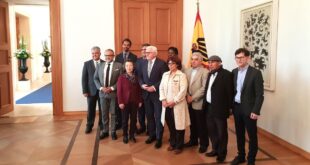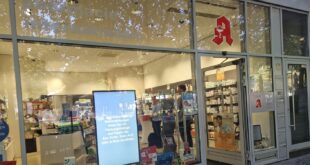The historic People of African Descent (PAD) Week Germany ended on Saturday in Berlin with workshops and panel discussions on the situation of Black people in the country.
Organised by Each One Teach One (EOTO) e.V., a community-based education and empowerment project, PAD Week Germany, held on 28-30 November and attended by more than 250 participants, also marked the third anniversary of the UN International Decade for People of African origin in Germany.
Among the issues discussed during the 3-day congress are the under-representation of Black people in the political decision-making process, deficits in the human rights protection of people of African descent and possible ways to empower the Black community in the country.

The Week kicked off at the Bundestag on Thursday with presentations and panel discussions on the problems faced by Black people as a result of racism and discrimination.
The opening event was addressed by, among others, Dr Karamba Diaby, SPD member of the federal parliament; Annette Widmann-Mauz (CDU), Federal Commissioner for Migration, Refugees and Integration; Lord Simon Wolley, a political and equality activist from the UK; Aminatta Touré (Green), deputy president of the state parliament of Schleswig Holstein; and Elizabeth Kaneza, the UN Decade’s Fellow for Germany.
Speaker after speaker talked about the negative experiences of people of African descent in daily life – when looking for apartment, in encounters with the police, applying for jobs, as a subject of stereotypes in political discourse etc.
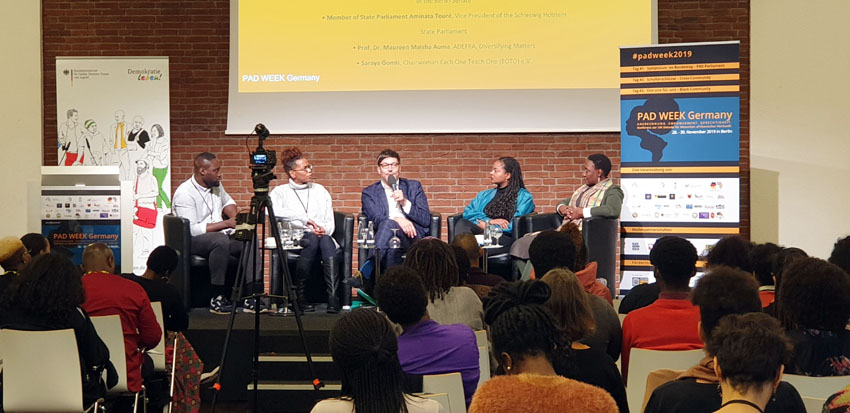
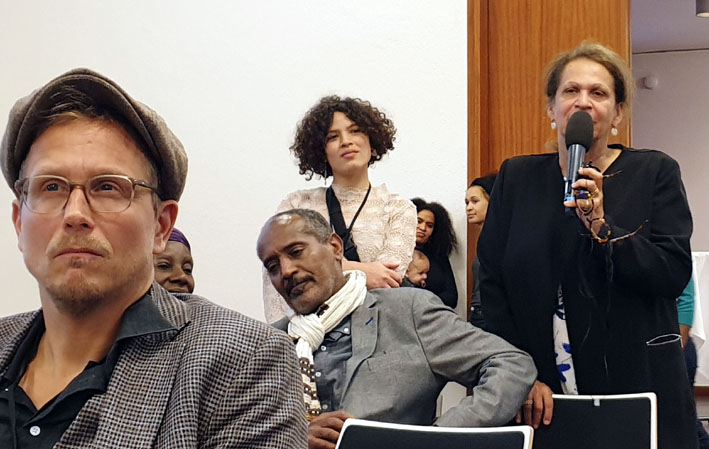
Widmann-Mauz, a minister of state who is also a member the Bundestag, said the German government was committed to ensuring that every citizen enjoyed the rights accorded them under the constitution, one of which is the right not to be discriminated against.
She also talked about the country’s National Action Plan against Racism, under which the government deploys integration measures to fill identified gaps. The plan recognises people of African descent as one of the four groups – the others being Sinti and Roma, Jewish people and Muslims, identified as especially affected by racism. “It’s the duty of government to fight racism and curtail the influence of hate mongers in society,” she added.
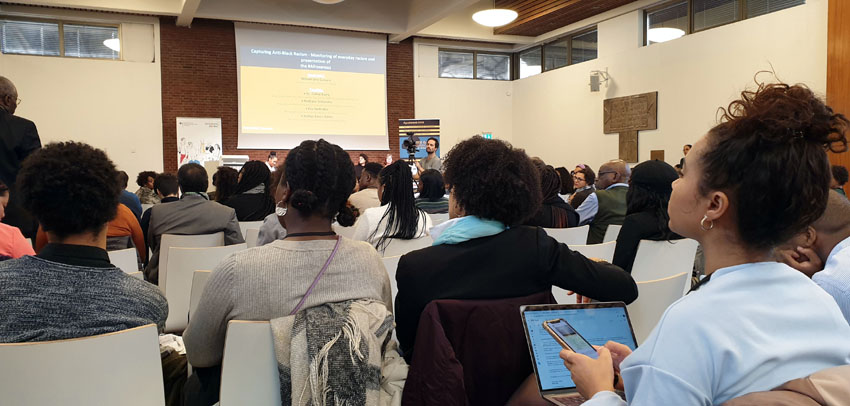
Lord Simon Wolley, who is the director of Operation Black Vote and a commissioner for race on the Equality and Human Rights Commission in the UK, called on the Black community to develop concrete plans to fight their cause. “Martin Luther King did not only have a dream, he also had a plan for the empowerment of Black people,” the equality activist admonished. “You’re ready now! Don’t listen to people who tell you to get more education and experience.”
Ms Mireille Fanon-Mendés France, former member of the UN Working Group of Experts on People of African Descent, called for the proper identification of racism directed Black people. “It’s Afrophobia, not just racism,” the daughter of the legendary Black liberation thinker Frantz Fanon advised.
Goran Buldioski, co-director of Open Society Initiative for Europe, advised the Black community to work in strategic alliance with other groups experiencing discrimination to achieve their goals. “To make things happen, you must be able to influence those who have power of governance,” he said.
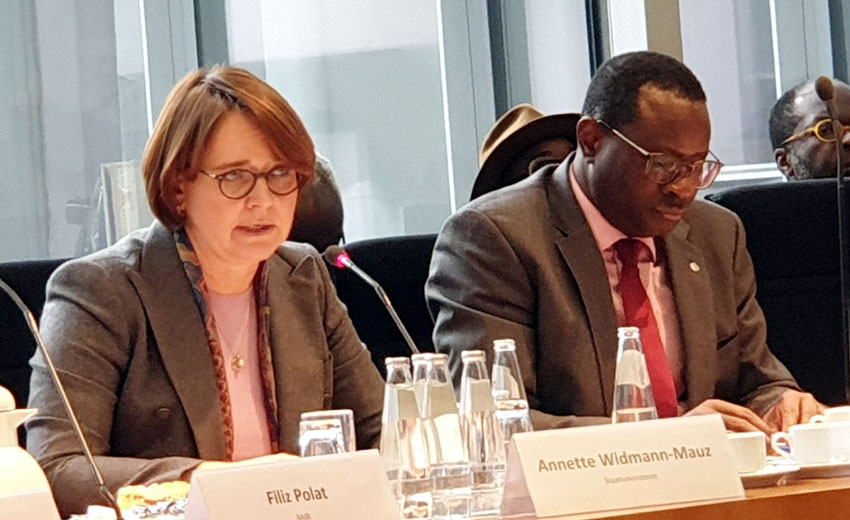
Alfiaz Vaiya, Coordinator of the European Parliament Anti-Racism and Diversity Inter-group, said it’s important to tell Black people to register to vote in order to be engaged in the political process. “We must be conscious of our electoral value,” he advised.
During the 3-day congress, several panels discussed issues ranging from engagement with the authorities and other disadvantaged groups to monitoring racism and dealing with racial profiling by the police.
It’s however not all about complaints as empowerment workshops were held on how Black people in the country could overcome the identified hindrances to their individual and collective advancement.
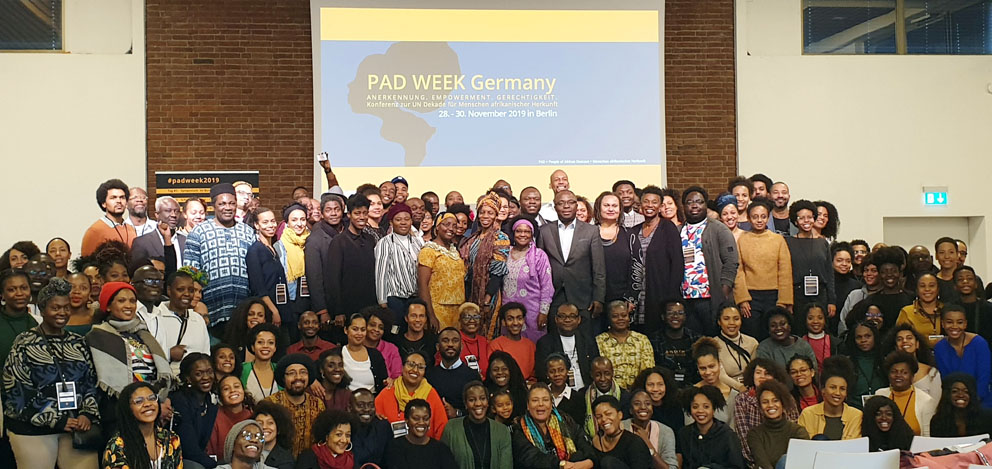
The event closed on Saturday with a performance by D’bi Young Anitafrika, the Jamaican-Canadian dub poet – a proper and fitting climax to three days of powerful, inspiring and thought-provoking deliberations of the history-making congress.
Anitafrika took on the powers that be – be it in Europe, Africa or the Americas, who are holding the world of people of African descent back from fulfilling its potential.
No better way than with such an emotional, high-energy artistic performance to end the gathering, which Lord Simon Wolley said was like “a blank sheet waiting to be filled with history”.
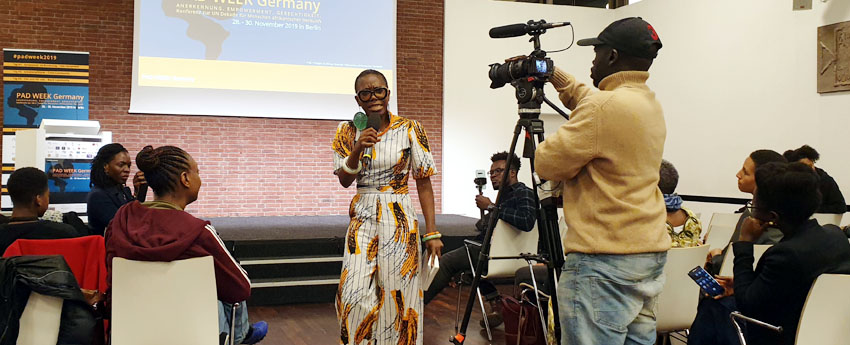
Daniel Gyamerah, chairman of EOTO, said more than 35 groups representing people of African descent in Germany put the event together and that the network of these groups would continue their work beyond the event to promote unity and solidarity among people of African descent in Germany.
The challenge before the Black community is to keep the momentum of PAD Week Germany 2019 going.
Femi Awoniyi
In the Final Declaration at the end of the congress, the organisers called on Germany, among others, to
- fulfil its obligations and fully implement The Durban Declaration and Programme of Action (DDPA) and the UN Decade for People of African Descent (UN Resolution 69/16)
- eliminate all forms of institutional racism in the educational, political, health, economic, justice and administration systems and the media
- clarify the chains of events and responsibilities leading to the death of every member of the community of People of African Descent who was murdered or lost their lives under unclear circumstances, especially in the hands of law enforcement authorities
The communiqué also expressed appreciation of the increased use by the United Nations of the term Afrophobia to describe the “specific, multiform racism against People of African Descent” and called on the global body to set up a “Permanent Forum for People of African Descent”
READ ALSO Congress pushes for more recognition of Black people in Germany
READ ALSO Afrozensus: Measuring anti-Black Racism and Discrimination in Germany
 THE AFRICAN COURIER. Reporting Africa and its Diaspora! The African Courier is an international magazine published in Germany to report on Africa and the Diaspora African experience. The first issue of the bimonthly magazine appeared on the newsstands on 15 February 1998. The African Courier is a communication forum for European-African political, economic and cultural exchanges, and a voice for Africa in Europe.
THE AFRICAN COURIER. Reporting Africa and its Diaspora! The African Courier is an international magazine published in Germany to report on Africa and the Diaspora African experience. The first issue of the bimonthly magazine appeared on the newsstands on 15 February 1998. The African Courier is a communication forum for European-African political, economic and cultural exchanges, and a voice for Africa in Europe.




















